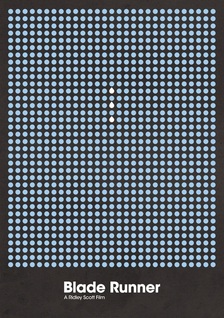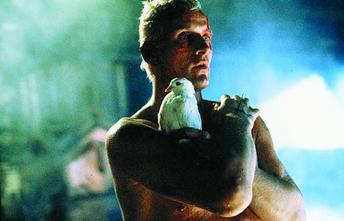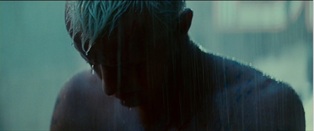
Before I continue, I’m going do this:
SPOILER WARNING!! GO WATCH THIS FILM BEFORE CONTINUING!!
Blade Runner is almost utterly singular in its place in filmdom. Originally based on Philip K. Dick’s novel Do Androids Dream of Electric Sheep? and directed by Ridley Scott, it is a text of vast thematic scope; a piece of art of incredible conceptual design; a nightmare of production problems; polarising like almost none other.
There are perhaps only a handful of films in the world that are simultaneously regarded as both over-rated and under-rated, but Blade Runner is most certainly one of them, if not the definition of the type.

Rutger Hauer also represents different things to different people. To some, he’s the dangerous man wandering the American highways from The Hitcher. To others, he’s the US version of Japan’s blind swordsman Zatoichi from Blind Fury. Others may think of him as the knight/wolf from Ladyhawke. And a few may just know him as a pint of Guinness (Google that if you’ve no idea what I’m talking about). However, when all is said and done, Rutger Hauer’s cinematic legacy will forever be defined by one character: the murderous rogue replicant, Roy Batty.

The end of Roy’s life is a beautifully fragile moment, perhaps made all the more so by its placement in this environment of constant rain, darkness and gloom. At the moment of his demise, Roy delivers a delicate reflection on what it means to die, that it isn’t just a shift in physical state, but a loss of everything that you have accumulated in your experience of life. It’s achingly sad… but Roy smiles faintly through it. In this gentle moment, played perfectly by Hauer, he acknowledges that to lose all of these small pieces of existence means that he had to be part of them… Roy Batty had life.
Setting the scene: Deckard and Roy are now nearly at their end. Deckard is trying to outrun the rogue replicant, who chases him the roof of the building. In a bid to get away, Deckard attempts to leap to another roof, but falls short and now clings for dear life from protruding girder. Roy, observing the fate of his hunter/prey, makes the leap and saves Deckard’s life, which will cost him his own. Roy’s death now imminent, he considers his fate…

 RSS Feed
RSS Feed
